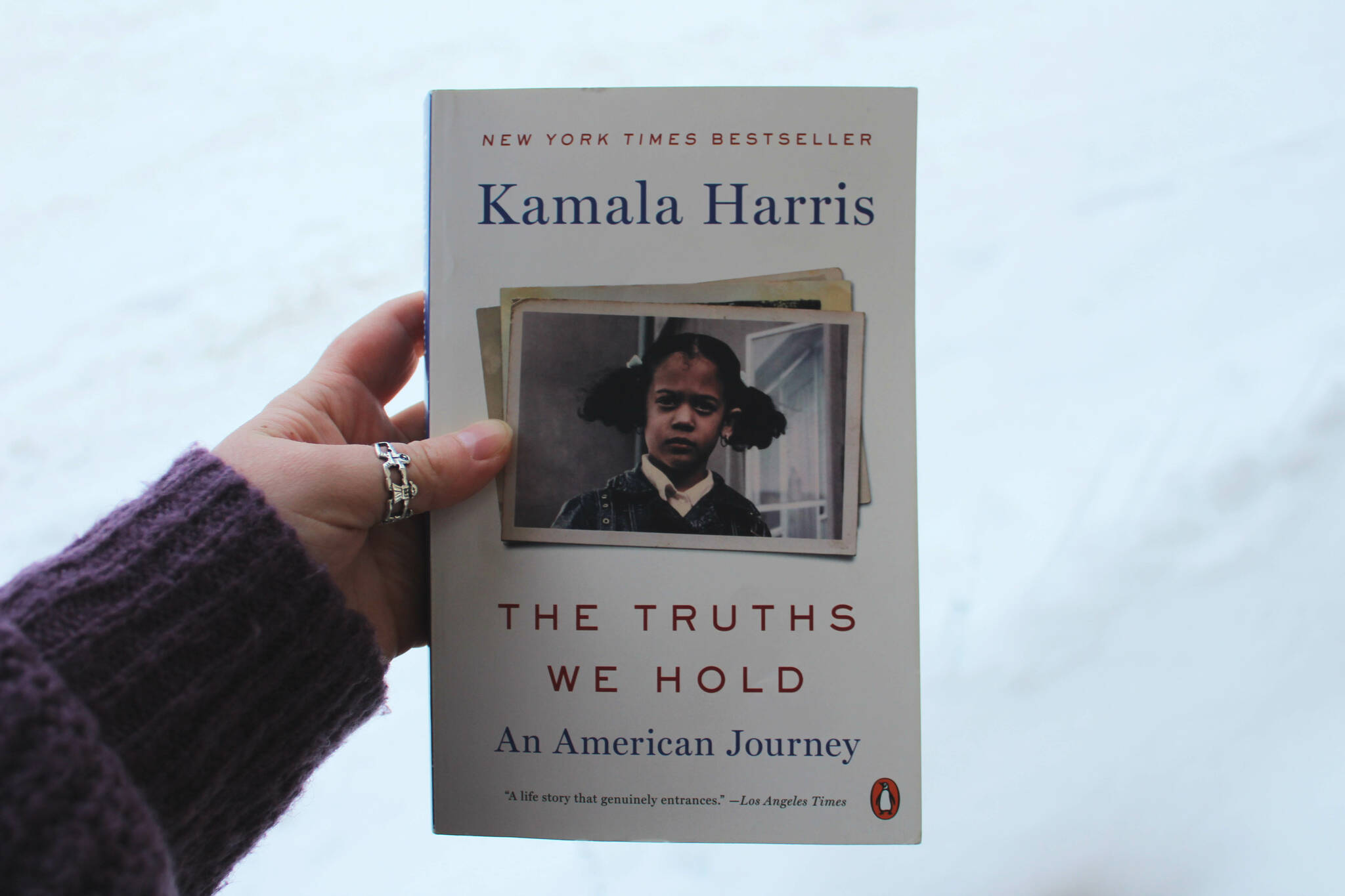As Black History Month prepares to give way to Women’s History Month, last week felt like a perfect time to pick up a book that’s been sitting on my shelf for the last few months: Kamala Harris’ 2019 memoir, “The Truths We Hold: An American Story.”
Regardless of how someone feels about Harris’ politics, there are a lot of significant “firsts” associated with her that will underscore her place in history.
To name a few, first woman, Black woman and South Asian woman to serve as San Francisco District Attorney. First Black person and first woman to serve as California Attorney General. First Black, first South Asian and first woman to serve as vice president of the United States.
Despite being a born-and-raised Californian, I’ve realized as Harris has climbed the political ladder that I don’t know much about her. A copy spotted at one of the used bookstores in town, therefore, was an easy add to my shopping basket last year.
Unfortunately, “The Truths We Hold” doesn’t let readers get to know Harris the way I wanted to.
The work’s roughly 300 pages read like a cover letter for someone about to run for president, which, in a way, they were. The book was published two weeks before she formally announced her intention to run for president in 2020 and it is clear throughout that she is making an effort to present herself as possessing the traits needed for a good leader and, particularly, for president of the United States.
Harris’ upbringing is an undoubtedly compelling story of the American dream. Her parents were both immigrants, one from India and one from Jamaica, who moved to the United States and started a family. Harris says her parents met while organizing in support of the civil rights movements in college, and Harris said political involvement was always a big part of her life.
Harris in this book, however, favors a neatly packaged, sound-bite ready summation of her life in a way that all works to bolster her underlying argument: that she has the qualities that make her the best candidate to be the next president.
However, that style of presentation comes across as somewhat disingenuous. I found myself wondering at times whether I was reading the best anecdotes or the ones that made her look best as a candidate. For that reason, passages sometimes failed to resonate with me.
Still, “The Truths We Hold” is filled with information relevant to understanding Harris’ rise as a leader in politics, from law school to becoming California’s attorney general. She offers insight into what it means to be a “progressive prosecutor,” her philosophy when it comes to prosecuting criminals, and outlines various programs through which she’s been able to implement positive change.
Some chapters refreshed childhood memories I had of growing up in California. Some of the state’s biggest issues, which Harris litigated, provided the opportunity to revisit those topics with adult eyes.
California Proposition 8, for example, was passed narrowly by voters in 2008, when I was 9 years old. The proposition, which dealt with same-sex marriage, was litigated all the way up to the U.S. Supreme Court, which ruled that it was unconstitutional. Throughout the entire process, Harris was in the room where things were happening.
In the years since “The Truths We Hold” was published, Harris has made even more of a name for herself in politics. If she ever decides to write another book, I hope her political persona can take a back seat to who she is as a person.
“The Truths We Hold: An American Journey,” was published in 2019 by Penguin Press.
Reach reporter Ashlyn O’Hara at ashlyn.ohara@peninsulaclarion.com.
Off the Shelf is a bimonthly literature column written by the staff of The Peninsula Clarion that features reviews and recommendations of books and other texts through a contemporary lens.

